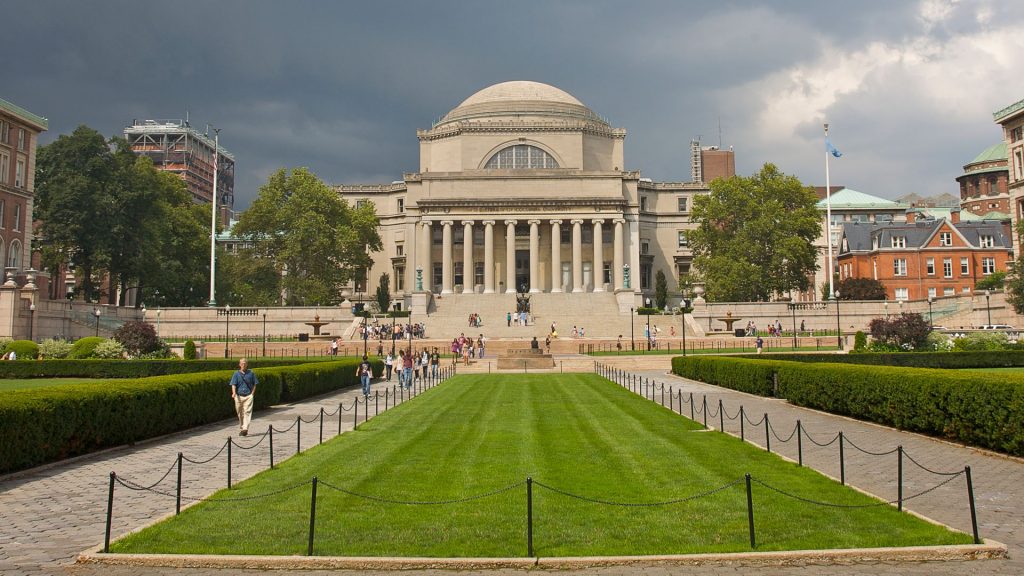Columbia’s $200 million fine may be first of many for elite universities

The $200 million fine that Columbia University agreed to pay the Trump administration may be only the beginning. The administration is reportedly seeking steep payments from other elite schools that would allow them to continue receiving federal funding.
Those schools include Harvard University, which has sued the administration over $3.3 billion in frozen or canceled research grants.
Harvard is main target
The administration is negotiating with several schools, including Brown, Cornell, Duke and Northwestern, The Wall Street Journal reported Friday, July 25. The Journal cited “a person familiar with the matter.”
But Harvard is the main target, according to the Journal, which said Trump administration officials may try to fine the school hundreds of millions of dollars — exponentially more than Columbia paid — to resolve federal civil rights investigations.
The U.S. Department of Education and the Department of Health and Human Services claim Harvard and other schools discriminated against Jewish students by failing to tamp down on antisemitism on campus.
The agencies’ investigations stem from how universities handled pro-Palestinian demonstrations in 2024. The administration has attempted to deport some international students involved in those protests and claims schools exposed Jewish students to harm by not containing the demonstrations.
The investigations are part of a broader effort by President Donald Trump to reshape American higher education. Since returning to office in January, Trump has repeatedly criticized what he calls illegal diversity, equity and inclusion programs at top universities, derisively referring to their “wokeness.” Through an executive order, he barred federal funding from schools that refuse to dismantle DEI initiatives.
In one instance, the Department of Justice forced the resignation of the University of Virginia’s president over his refusal to comply with the administration’s orders.
Columbia deal may be prototype
Unbiased. Straight Facts.TM
Columbia University will pay a $200 million fine to the Trump administration to resolve a civil rights investigation. The administration reportedly is pursuing similarly steep fines against other elite universities.

In essence, Columbia will spend more than $200 million to free up $1.3 billion in federal research funding. That makes its agreement with the administration a potential prototype for deals involving other universities.
The agreement calls for Columbia to pay the fine over three years and to put aside another $21 million to compensate faculty and staff members who allege they experienced employment discrimination.
Columbia promised to review its curriculum to ensure its academic offerings are “comprehensive and balanced,” and it agreed to initiate no “unlawful efforts to achieve race-based outcomes, quotas, diversity targets or similar efforts.”
The university also agreed to crack down on campus protests. Demonstrations inside academic buildings “and other places where academic activities take place” will not be allowed, and protesters will be barred from wearing face masks to hide their identity. In addition, Columbia will hire 36 “special officers” who will have the authority to remove or arrest protesters “when appropriate.”
The administration apparently made only one concession: It agreed it has no authority to “dictate faculty hiring, university hiring, admissions decisions, or the content of academic speech.”
“This agreement marks an important step forward after a period of sustained federal scrutiny and institutional uncertainty,” Columbia’s acting president, Claire Shipman, said in a statement. “The settlement was carefully crafted to protect the values that define us and allow our essential research partnership with the federal government to get back on track. Importantly, it safeguards our independence, a critical condition for academic excellence and scholarly exploration, work that is vital to the public interest.”
Mixed reviews
Columbia’s agreement — and the potential for similar deals with other schools — drew mixed reviews from the academic community.
Lee C. Bollinger, a former Columbia president, told The New York Times that the Trump administration’s actions against top universities “cross several very serious, grave lines — legal, constitutional and basic norms.”
“You have to come away feeling that this is really a tragedy for higher education and the country.”
Others say the resolution was as good as Columbia or other schools could have hoped for.
“I would much rather live in a world in which the federal government did not use its power of the purse in an effort to smash the vital independence of the universities,” Stephen L. Carter, a law professor at Yale, wrote for Bloomberg Opinion. “Yet, for all its flaws, the Columbia settlement is not nearly as bad as it could have been. If the administration’s other campus investigations end in similar agreements, we might come out of the whole mess with the academy and its mission intact.”
Lawrence H. Summers, a former Harvard president, wrote on X that the Columbia deal seems to be “an excellent template for agreements with other institutions,” including Harvard.
He said Columbia maintains academic autonomy while regaining “normal funding patterns” and the availability of visas for international students. At the same time, he said, the school will continue fighting antisemitism on campus.
“I, like anyone, could quibble with aspects of the program and much will depend on what both Columbia and the government do in the future,” Summers wrote. “But this may be the best day higher education has had in the last year.”





